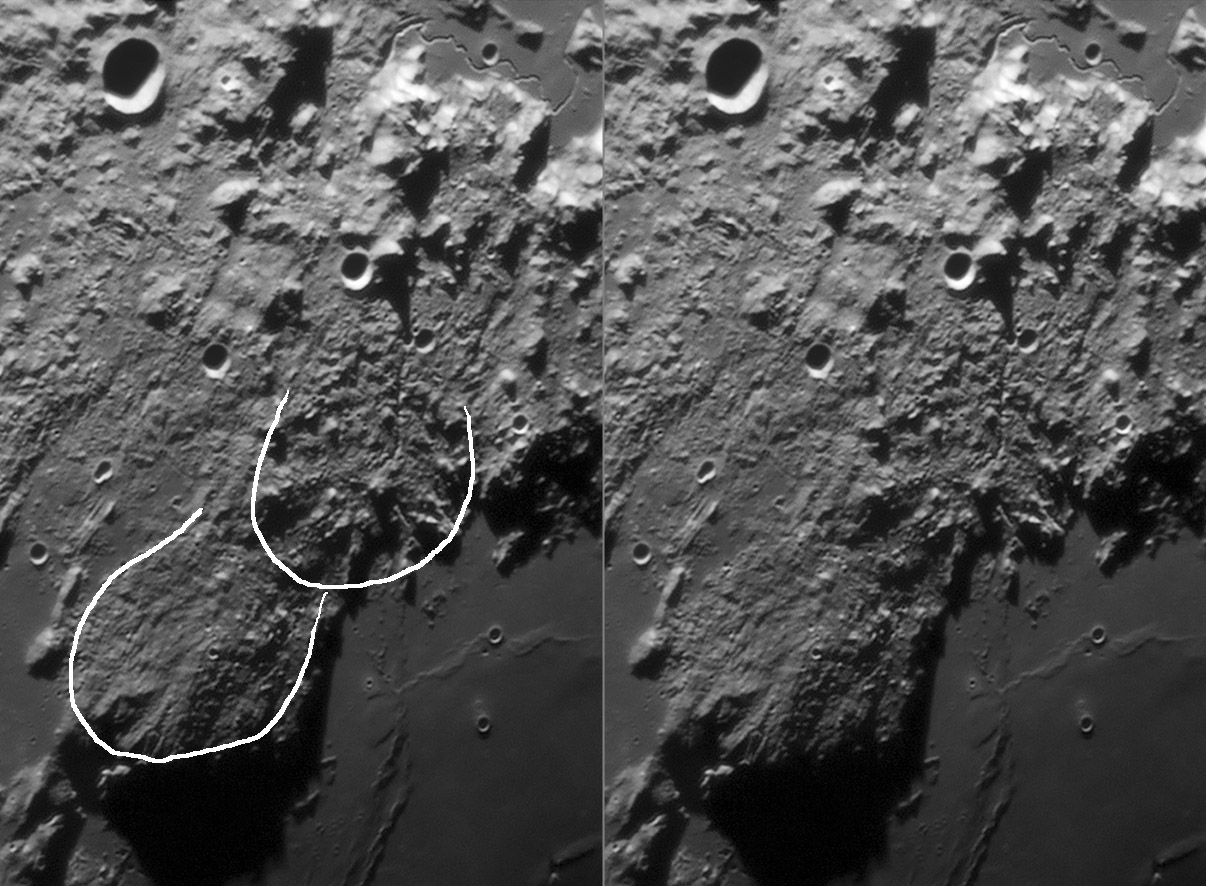Difference between revisions of "August 21, 2009"
| Line 31: | Line 31: | ||
<br /> | <br /> | ||
<strong>Related Links</strong><br /> | <strong>Related Links</strong><br /> | ||
| − | Rükl plate [https://the-moon.us/wiki/ | + | Rükl plate [https://the-moon.us/wiki/Rükl_22 22]<br /> |
The entire [http://www.pbase.com/slammel/image/116182182/original mosaic] that shows Ina, unknown domes and myriad other surprises.<br /> | The entire [http://www.pbase.com/slammel/image/116182182/original mosaic] that shows Ina, unknown domes and myriad other surprises.<br /> | ||
<br /> | <br /> | ||
Latest revision as of 19:34, 18 August 2018
Modes of Devastation

west up image by Stefan Lammel, UK
This image stretches from the placid ocean of frozen lava at the top across a field of carnage resulting
from the catastrophic barrage of material that rushed over the landscape and fell out of the sky 3.8
billion years ago when the Imbrium Basin was excavated. We will never be able to fully untangle the
mechanisms of deposition that created this tortured terrain on the backside of the Apennines. Near top
center, sharp linear boundaries appear to mark shear zones where the crust fractured and slabs were
pushed away from the basin. The serrated edge of the Apennines supports the notion of large blocks
sliding away. And Stefan has indicated on the left image another style of movement. He has outlined
two giant mounds that could be massive piles of debris that surged across the surface. The bottom one,
casting a deceptively huge shadow, is the main mass of the Haemus Mountains. It has pasty lineations
and ridges that seem like flow lobes, radial to Imbrium. The outlined feature closer to Imbrium has a
different look; it seems to have five arms that splay out from a hilly spot at the end of a straight groove.
The interpreted movement of the first lobe makes sense, but why would debris flung from Imbrium divide
and go different directions? Stefan speculates that as the second lobe was moving an impact of a mountainous mass hit it, pushing material away in all directions. That is as reasonable a guess as any, and
offers an explanation for the bright hill. It may be that the straight groove has nothing to do with the lobe,
for its trace continues on the mare as a line of hills - see them? This implies a fracture that leaked little
belches of magma.
Chuck Wood
Technical Details
Aug 12, 2009. 10in f4.8 Newtonian, Infinity 2-1M, 5x Powermate, green filter, Avistack, Registax v.5,
PSE5, Focus Magic.
Related Links
Rükl plate 22
The entire mosaic that shows Ina, unknown domes and myriad other surprises.
Yesterday's LPOD: Succession
Tomorrow's LPOD: Is There Ice Here?
COMMENTS?
Register, Log in, and join in the comments.



